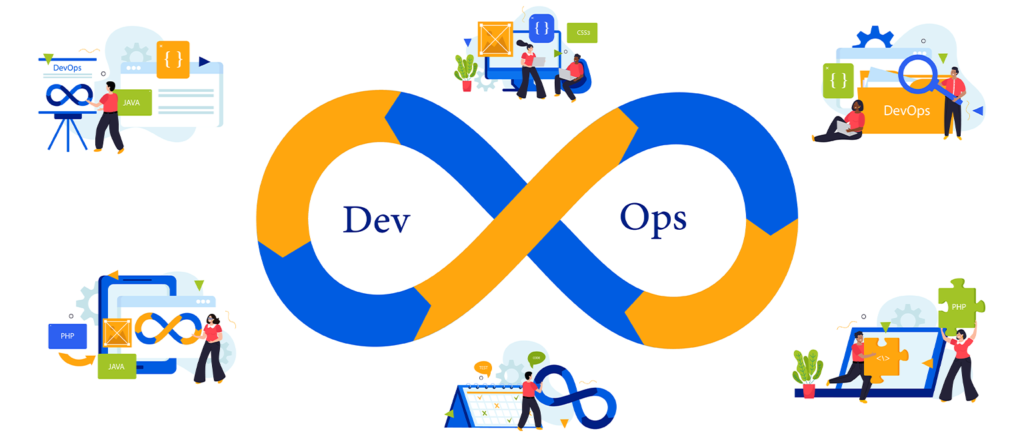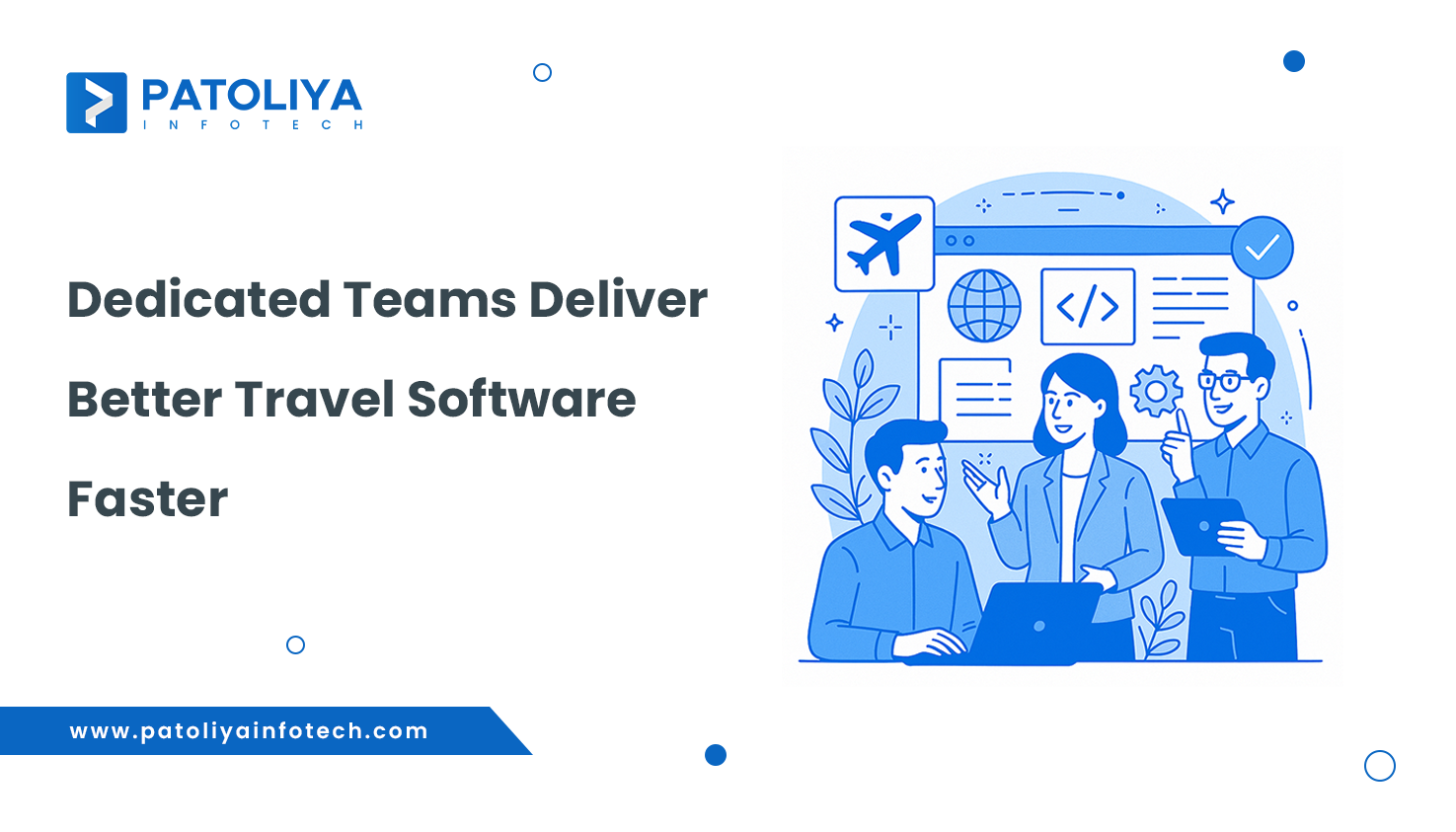Revolutionize Your Business: Embrace DevOps for Seamless Software Development

Table of Contents
Businesses in various industries are always looking for ways to innovate and streamline operations in today's fast-paced digital landscape. The software development landscape is being revolutionized by DevOps, a transformative methodology. Discover how adopting DevOps can transform your business and streamline software development.
Introduction to DevOps
Defining DevOps
DevOps, a luggage of Development and Operations, is an agile methodology that emphasizes collaboration, communication, and integration between software development and IT operations teams. It aims to automate and streamline the software development lifecycle, fostering a culture of continuous improvement and rapid delivery.
Evolution of DevOps
DevOps emerged as a solution to bridge the gap between development and operations, addressing issues caused by traditional statements. Initially, it emerged as a solution to achieve faster deployment cycles and ensure software reliability.
The Importance of DevOps in Modern Businesses
In today's competitive market, businesses face increasing pressure to innovate rapidly and respond promptly to changing consumer demands. By further activity, DevOps helps businesses stay competitive in a changing market.
Benefits of Embracing DevOps
Streamlined software development
DevOps practices promote collaboration and integration among development, operations, and quality assurance teams, leading to faster development cycles and more reliable software releases.
Improved collaboration and communication
By breaking down silos and encouraging cross-functional teamwork, DevOps fosters better communication, ensuring alignment and shared goals among different teams within an organization.
Enhanced Efficiency and Time Savings
Teams can save time and concentrate on innovation and value addition by automating repetitive tasks and embracing agile practices in DevOps.
Achieving Continuous Integration and Continuous Deployment (CI/CD)
CI/CD pipelines in DevOps enable continuous integration and automated deployment, leading to quicker software releases.
Implementing DevOps in Business
Assessing Current Processes
Before implementing DevOps, businesses should assess their existing processes, identifying bottlenecks and areas for improvement and tailoring DevOps practices accordingly.
Setting Goals and Objectives
Clear goals and objectives aligned with business outcomes are crucial for a successful DevOps implementation strategy.
Choosing DevOps Tools and Technologies
Choosing the correct tools and technologies that match the company's objectives is crucial for a successful DevOps implementation.
Building a DevOps culture within the organization
Cultural transformation plays a pivotal role in DevOps adoption, requiring a mindset shift towards collaboration, continuous learning, and embracing change.
Case Studies: Successful Implementation of DevOps
Company A - Case Study Overview
Company A faced challenges in its software development lifecycle, resulting in delays and decreased quality.
Company A - Challenges and Solutions
By implementing DevOps practices, Company A improved collaboration, automated processes, and achieved faster and more reliable releases.
Company B - Case Study Overview
Company B faced resistance to change in adopting DevOps practices due to established workflows and organizational culture.
Company B - Impact of DevOps Adoption
Despite initial challenges, Company B successfully transitioned to DevOps, resulting in increased productivity, reduced errors, and improved customer satisfaction.
Overcoming Challenges in DevOps Adoption
Resistance to change
Competing teams that are inclined towards orthodox methodologies can hinder DevOps adoption. Effective communication and change management strategies are essential to overcome this resistance.
Integration issues
Integration of various tools and technologies into the DevOps pipeline can present challenges. Proper planning and testing mitigate these issues.
Security concerns
Security remains a critical aspect of DevOps. Implementing DevOps practices ensures they streamline safety precautions throughout the development process.
Managing cultural shifts
Cultural transformation is a continuous process. Encouraging open communication, fostering a collaborative environment, and providing continuous training are key to managing cultural shifts.
Future trends in DevOps
Automation and AI integration
The future of DevOps will witness increased automation and integration of Artificial Intelligence, further enhancing efficiency and accuracy in software development processes.
DevSecOps - Security in DevOps Practices
DevSecOps will gain more prominence, emphasizing the integration of security practices throughout the software development lifecycle.
Continuous Evolution of DevOps Practices
DevOps is an evolving discipline. Continuous improvement and adaptation to new technologies and methodologies will remain crucial for businesses to stay competitive.

Why Choose Patoliya Infotech for DevOps Services?
At Patoliya Infotech, we stand out as a beacon of excellence in the realm of DevOps services. Our commitment to delivering top-notch solutions and our unique approach sets us apart. Here's why you should choose us:
1. Expertise and Experience
With years of hands-on experience in DevOps methodologies, our seasoned professionals possess the expertise needed to streamline your software development lifecycle efficiently.
2. Tailored Solutions
We understand that each business is unique. Hence, we offer personalized DevOps solutions that align perfectly with your organization's goals and requirements.
3. Cutting-Edge Technologies
We stay ahead of the curve by incorporating the latest tools and technologies in the DevOps landscape. Our continuous exploration of innovative solutions ensures your business stays competitive.
4. Proven Track Record
Patoliya Infotech has a track record of successfully implementing DevOps strategies for diverse industries. Our case studies and client testimonials speak volumes about our dedication and results.
5. Collaborative Approach
We believe in working hand-in-hand with our clients. Our collaborative approach ensures transparency, effective communication, and a shared vision towards achieving your business objectives.
6. Comprehensive Support
From the initial assessment to the final implementation and beyond, our team offers comprehensive support and maintenance, ensuring a seamless DevOps integration and continuous improvement.
7. Customer-Centric Focus
Your satisfaction is our priority. We prioritize your needs and strive to exceed your expectations by delivering high-quality, scalable, and reliable DevOps solutions.
When you partner with Patoliya Infotech for DevOps services, you're not just choosing a service provider; you're selecting a dedicated ally committed to empowering your business for success.
Ready to revolutionize your business with seamless DevOps practices? Get in touch with us today!
Conclusion
Embracing DevOps can revolutionize businesses by streamlining software development, fostering collaboration, and enhancing efficiency. To stay ahead in a rapidly evolving digital landscape, businesses must adapt to DevOps practices, enabling them to innovate and deliver high-quality software products or services consistently.



